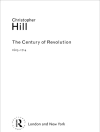This book sheds new light on the relationship between religion and state in early modern Japan, and demonstrates the growing awareness of Shinto in both the political and the intellectual elite of Tokugawa Japan, even though Buddhism remained the privileged means of stately religious control.
The first part analyses how the Tokugawa government aimed to control the populace via Buddhism and at the same time submitted Buddhism to the sacralization of the Tokugawa dynasty. The second part focuses on the religious protests throughout the entire period, with chapters on the suppression of Christians, heterodox Buddhist sects, and unwanted folk practitioners. The third part tackles the question of why early Tokugawa Confucianism was particularly interested in “Shinto” as an alternative to Buddhism and what “Shinto” actually meant from a Confucian stance.
The final part of the book explores attempts to curtail the institutional power of Buddhism by reforming Shinto shrines, an important step in the so called “Shintoization of shrines” including the development of a self-contained Shinto clergy.
Stefan Kock & Brigitte Pickl-Kolaczia
Religion, Power, and the Rise of Shinto in Early Modern Japan [EPUB ebook]
Religion, Power, and the Rise of Shinto in Early Modern Japan [EPUB ebook]
Bu e-kitabı satın alın ve 1 tane daha ÜCRETSİZ kazanın!
Biçim EPUB ● Sayfalar 304 ● ISBN 9781350181083 ● Editör Stefan Kock & Brigitte Pickl-Kolaczia ● Yayımcı Bloomsbury Publishing ● Yayınlanan 2021 ● İndirilebilir 3 kez ● Döviz EUR ● Kimlik 7781960 ● Kopya koruma Adobe DRM
DRM özellikli bir e-kitap okuyucu gerektirir












